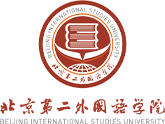
"Students proficient in Python programming and one or two foreign languages are better prepared to meet the challenges of the AI era and are more competitive in both academic and professional settings," said Wang Jing from the School of Artificial Intelligence and Language Sciences at Beijing International Studies University (BISU).
BISU launched its Foreign Languages + Artificial Intelligence and Language Cognition undergraduate pilot program several years ago. It is open to high-achieving students from all departments, allowing voluntary enrollment and withdrawal at any time.
Undergraduates were recruited by the Artificial Intelligence and Language Cognition Laboratory to participate in the Honorary Research Assistant Project and Honorary Research Project. Upon approval, each student is assigned an academic advisor specializing in AI or language cognition.
By 2025, over 200 undergraduates had participated in the program, with more than 50 of them receiving honorary assistant certificates or honorary project certificates. Many participants have pursued further studies at prestigious universities worldwide, extending their expertise from foreign language humanities to interdisciplinary fields such as computer science, IT and cognitive science, language data science, information management and natural language processing.
For example, Yu Siming studies information technology and cognition at the University of Copenhagen and Zhang Yuying, a 2021 cohort French major, has been admitted to Beijing Normal University for a graduate program in Chinese information processing.
The program received unanimous praise from the 2024 undergraduate review evaluation expert group and the Beijing Municipal Education Commission's AI general education course supervision expert group, with the laboratory being recognized as an Outstanding Undergraduate Teaching Laboratory of Beijing Higher Education.
In a message to Wang, Shen Yulan, a 2020 cohort English major now studying information management at the University of Illinois Urbana-Champaign, said, "At BISU, I not only learned English and linguistics but also acquired foundational Python programming skills and other natural languages, sparking my interest in the intersection of languages and AI, especially in the research of multilingual large language models. The syntax branch of linguistics is closely linked with natural language processing, and the differences in language and culture have inspired my research in AI."
This year, the university further launched the Undergraduate Elite Talent Training Program, implemented by the newly established School of Artificial Intelligence and Language Sciences. The university will initially recruit interdisciplinary talents from English, French, Russian and Portuguese majors. The first cohort will begin in September, with an annual enrollment of 120 students.
Simultaneously, the university will apply to establish a new secondary discipline, Language and Artificial Intelligence, within the primary discipline system of foreign language and literature, enrolling 40 master's students annually from 2025 onwards to cultivate high-level interdisciplinary AI and language talents.
Additionally, the university will offer AI micro-major and elective courses to all language undergraduates, creating pathways for developing intelligent technology and algorithm literacy across different language majors, forming a shared, interconnected and collaborative innovative learning ecosystem campus-wide.

Photo shows BISU students collect MRI data at the Institute of Psychology, Chinese Academy of Sciences.
The university also collaborates closely with Beijing Tiantan Hospital under Capital Medical University, focusing on major needs in the fields of language disorders and neurocognition. Together, they promote the "university-hospital collaborative innovation" model, integrating the theoretical and research advantages of foreign language universities in language studies with the clinical resources and technology of hospitals.
This integration spans the entire chain from basic research, clinical trials and result transformation to practical application, supporting high-level technological self-reliance and self-improvement and promoting high-quality development.
"This is an AI-based early screening research project for Alzheimer's disease using brainwave tasks. Clinical studies show that speech disorders are often a critical early signal of Alzheimer's. If related symptoms can be accurately identified and intervened early, it can significantly improve patients' quality of life. Unlike traditional methods relying on invasive detection techniques, brainwave detection is both precise and non-invasive," explained Zhang Wei, director of the Cognitive Disorders Department.
"Our collaboration with BISU focuses on exploring whether there are specific neural biomarkers in the language processing of patients with language disorders, an area that has long lacked deep involvement from neurolinguistics experts," Zhang added.
"This is not just a research project but a complete innovation ecosystem that integrates clinical practice, elderly community services, and the industrialization of results," according to Wu Jianshe, dean of the School of Artificial Intelligence and Language Sciences at BISU.
The School of Artificial Intelligence and Language Sciences is rooted in the Language Cognition Laboratory established in 2008. The faculty of the school and laboratory have published over 100 English papers in international AI field top conferences such as the ACM SIGKDD Conference on Knowledge Discovery and Data Mining, International Joint Conference on Artificial Intelligence, and in authoritative international cognitive neuroscience journals like NeuroImage, Cerebral Cortex, Scientific Data and Nature Human Behaviour, laying a solid foundation in the neural mechanisms of language processing and intelligent computing.
"Language is humanity's oldest tool, and AI is the latest technological revolution. By combining the two, we hope to both preserve the cultural value of language and expand the technological boundaries of language," Wu said.

Links
